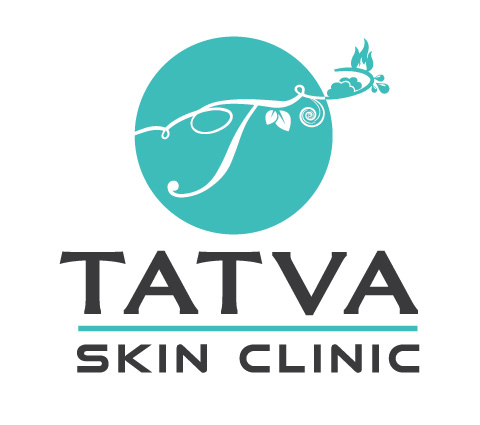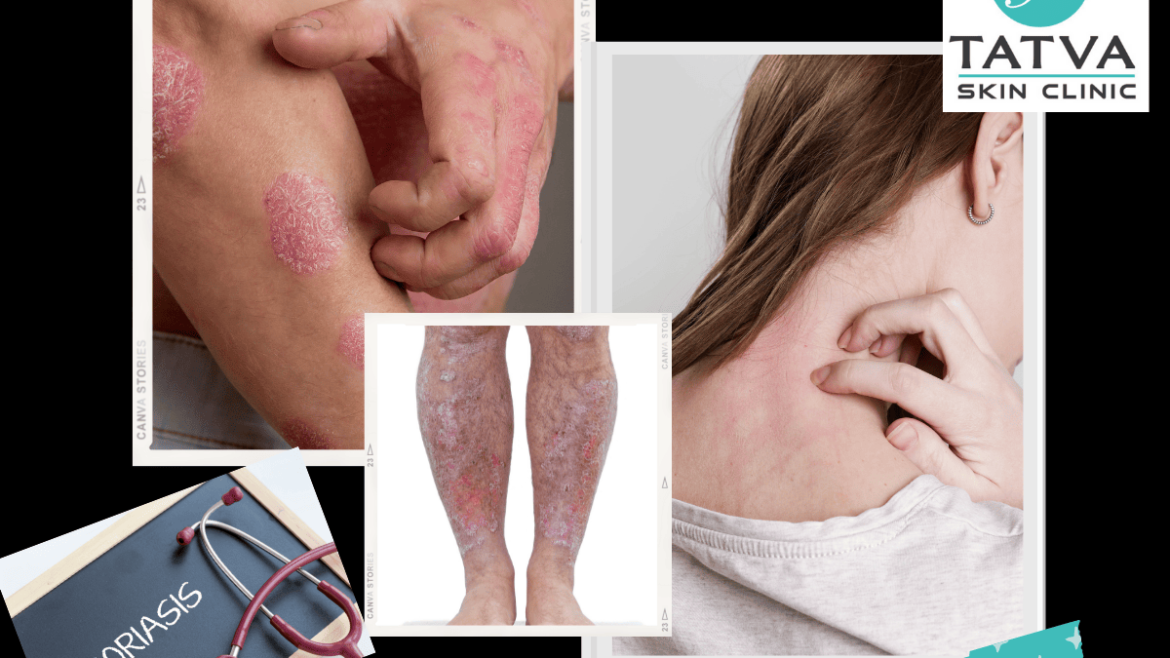Psoriasis is a common immune mediated chronic inflammatory disease affecting skin, nail and joints.
Genetic and environmental factors influence the incidence and its manifestation.
It is seen in about 0.4% to 4% of Indian population. Red scaly skin lesions are characteristic of psoriasis. In patients with a genetic and family history of psoriasis, the disease develops at an early age.
In some patients with psoriasis joint pain/ joint involvement occurs along with skin lesions and in some only joints are affected without any skin disease, joint psoriasis is known as psoriatic arthritis.
Psoriasis is a chronic disease.
Let us address some common queries, and the myths and facts about psoriasis.

Is psoriasis treatable?
- Psoriasis can be treated and controlled with various topical ( creams/ointments/lotions) and various oral and injectable medication. We can improve the quality of life in patients with joint pains with oral and injectable medication
Who treats psoriasis ?
- A board-certified dermatologist is the person you need to consult for treatment psoriasis. In presence of skin and joint symptoms a dermatologist and rheumatologist work together to help you get the best treatment for psoriasis.
What is the best treatment for psoriasis?
- Depending on severity and extent of skin lesions various medication are prescribed.
- Moisturizers and/or emollients are a very essential part of treatment.
- We have many topical preparations like steroids, which help to decrease the scaling and fissuring.
- If skin involvement is extensive, we use immune suppressant medication like methotrexate, cyclosporine and such to achieve good relief.
- Newer injectable monoclonal antibody drugs referred to as biologicals are helping patients achieve long remission.
- There is no best medication for psoriasis as treatment in each patient depends on the extent of disease, age, co morbidities in patients.
- UV light therapy, narrow band UVB is used to treat psoriasis.
Will psoriasis affect whole body?
- Psoriasis can affect only scalp( scalp psoriasis), only palms and soles(palmoplantar psoriasis), only joints(psoriatic arthritis), only nails(nail psoriasis) or only extensor surfaces of body or can be generalized involving almost all the body surface.
Will psoriasis affect children?
- A variant called guttate psoriasis is seen in children following acute upper respiratory infections.
- It responds well to treatment in many patients.
What is the best home remedy for psoriasis?
- Psoriasis is an immune mediated condition which requires active treatment. Plain coconut oil will help as a moisturizer/ emollient and help decrease dryness and itching. Avoid using essential oils.
What is the best light therapy for psoriasis?
- Ultraviolet light therapy, UV B therapy is often used to achieve good results in psoriasis patients using a UV chamber.
- The treatment requires the patient to come to the dermatology clinic or a hospital twice to thrice a week to get the treatment.
What is scalp psoriasis, how to treat it, is it the same as dandruff?
- Scaly plaques only limited to scalp with no lesions elsewhere is called scalp psoriasis. This can be the only site involved. Big white scales keep falling off the scalp and some patients have intense itching.
- Many patients refer to it as dandruff but it is not the same as dandruff.
- Topical preparations like leave on lotions and wash off lotions/ shampoos containing steroids, coal tar and salicylic acid are often used.
- Oiling of scalp helps to loosen the scales and give some relief from itching.
Can psoriasis be cured?
- Psoriasis can be effectively treated with the available armamentarium of medication.
- It is a multifactorial disease hence the aggravators are many.
- Remission can be achieved.
- Giving psoriasis patients a good quality of life is the aim of the treating dermatologist
Is psoriasis only limited to skin?
- Psoriasis is more than skin deep.
- Psoriasis is an inflammatory disease strongly associated with what doctors call metabolic syndrome.
- Metabolic syndrome includes abdominal or central obesity, hypertension, dyslipidemias, diabetes mellitus type 2, insulin resistance and non-alcoholic fatty liver disease.
- Patients with psoriasis should work towards maintaining a health lifestyle with regular exercise, avoidance of alcohol and smoking as they aggravate psoriasis and also are added risk factors for metabolic syndrome and adhere to treatments suggested by their skin specialist/ dermatologist.
Patients with psoriasis should not eat fish?
- This is a myth.
- It is advisable to eat fish as it contains essential fatty acids which are very important for skin health.
Consult your dermatologist at Tatva Skin Clinic for further advises and treatment options.
@tatvaskinclinic we have the best dermatologists for your skin care needs !!
To Book an Appointment, please contact to the phone number : 8790983414. We are now available for online consultation also.

